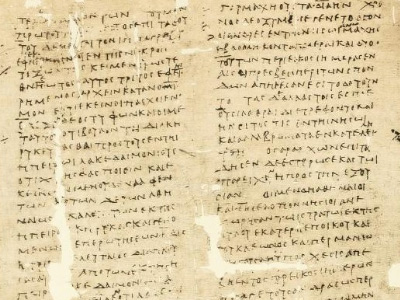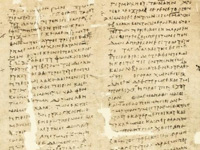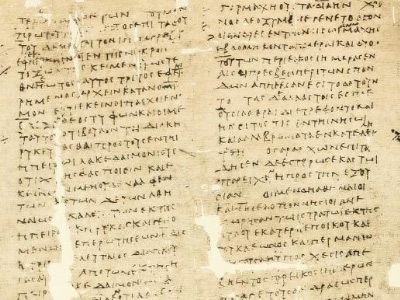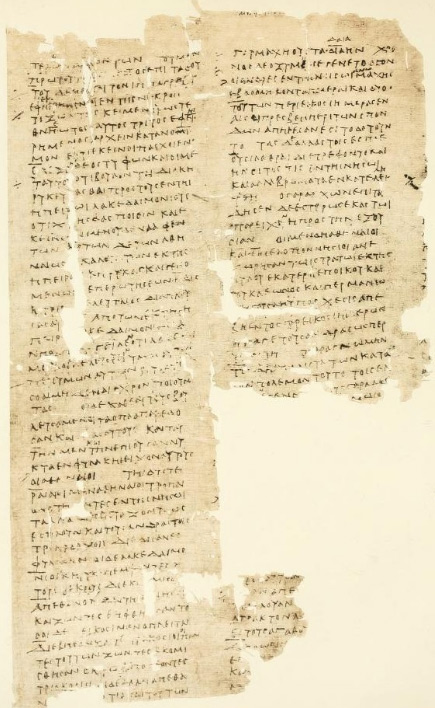Second Peloponnesian War (431-404 BC)

Lysander triumphs, Athens Surrenders
Faction triumphed in Athens following a minor Spartan victory by their skillful general Lysander at the naval battle of Notium in 406 BC. Alcibiades was not re-elected general by the Athenians and he exiled himself from the city. He would never again lead Athenians in battle. Athens was then victorious at the naval battle of Arginusae. The Spartan fleet under Callicratidas lost 70 ships and the Athenians lost 25 ships. But, due to bad weather, the Athenians were unable to rescue their stranded crews or to finish off the Spartan fleet. Despite their victory, these failures caused outrage in Athens and led to a controversial trial. The trial resulted in the execution of six of Athens’s top naval commanders. Athens’s naval supremacy would now be challenged without several of its most able military leaders and a demoralized navy.
Unlike some of his predecessors the new Spartan general, Lysander, was not a member of the Spartan royal families and was also formidable in naval strategy; he was an artful diplomat, who had even cultivated good personal relationships with the Persian prince Cyrus, the son of Darius II. Seizing its opportunity, the Spartan fleet sailed at once to the Hellespont, the source of Athens' grain. Threatened with starvation, the Athenian fleet had no choice but to follow. Through cunning strategy, Lysander totally defeated the Athenian fleet, in 405 BC, at the Battle of Aegospotami, destroying 168 ships and capturing some three or four thousand Athenian sailors. Only 12 Athenian ships escaped, and several of these sailed to Cyprus, carrying the "strategos" (General) Conon, who was anxious not to face the judgment of the Assembly.
Facing starvation and disease from the prolonged siege, Athens surrendered in 404 BC, and its allies soon surrendered as well. The democrats at Samos, loyal to the bitter last, held on slightly longer, and were allowed to flee with their lives. The surrender stripped Athens of its walls, its fleet, and all of its overseas possessions. Corinth and Thebes demanded that Athens should be destroyed and all its citizens should be enslaved. However, the Spartans announced their refusal to destroy a city that had done a good service at a time of greatest danger to Greece, and took Athens into their own system. Athens was "to have the same friends and enemies" as Sparta.
Aftermath
The overall effect of the war in Greece proper was to substitute a Spartan empire for an Athenian one. After the battle of Aegospotami, Sparta took over the Athenian empire and kept all of its tribute revenues for itself; Sparta's allies, who had made greater sacrifices for the war effort than had Sparta, got nothing.
For a short period of time, Athens was ruled by the "Thirty Tyrants", and democracy was suspended. This was a reactionary regime set up by Sparta. In 403 BC, the oligarchs were overthrown and a democracy was restored by Thrasybulus.
Although the power of Athens was broken, it made something of a recovery as a result of the Corinthian War and continued to play an active role in Greek politics. Sparta was later humbled by Thebes at the Battle of Leuctra in 371 BC, but the rivalry between Athens and Sparta was brought to an end a few decades later when Philip II of Macedon conquered all of Greece except Sparta.
HISTORY

RESOURCES
This article uses material from the Wikipedia article "Second Peloponnesian War (431-404 BC)", which is released under the Creative Commons Attribution-Share-Alike License 3.0.
© Stories Preschool. All Rights Reserved.










